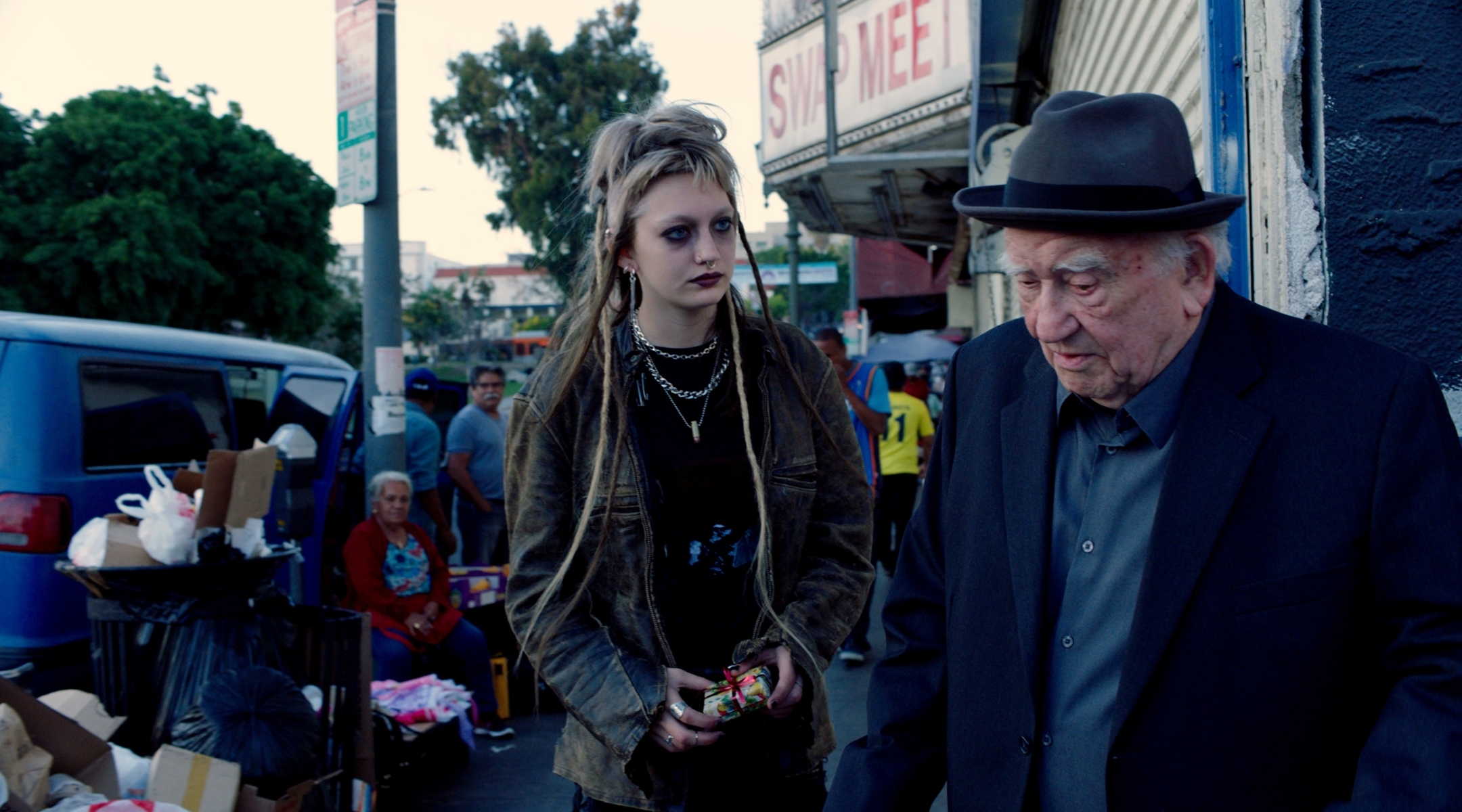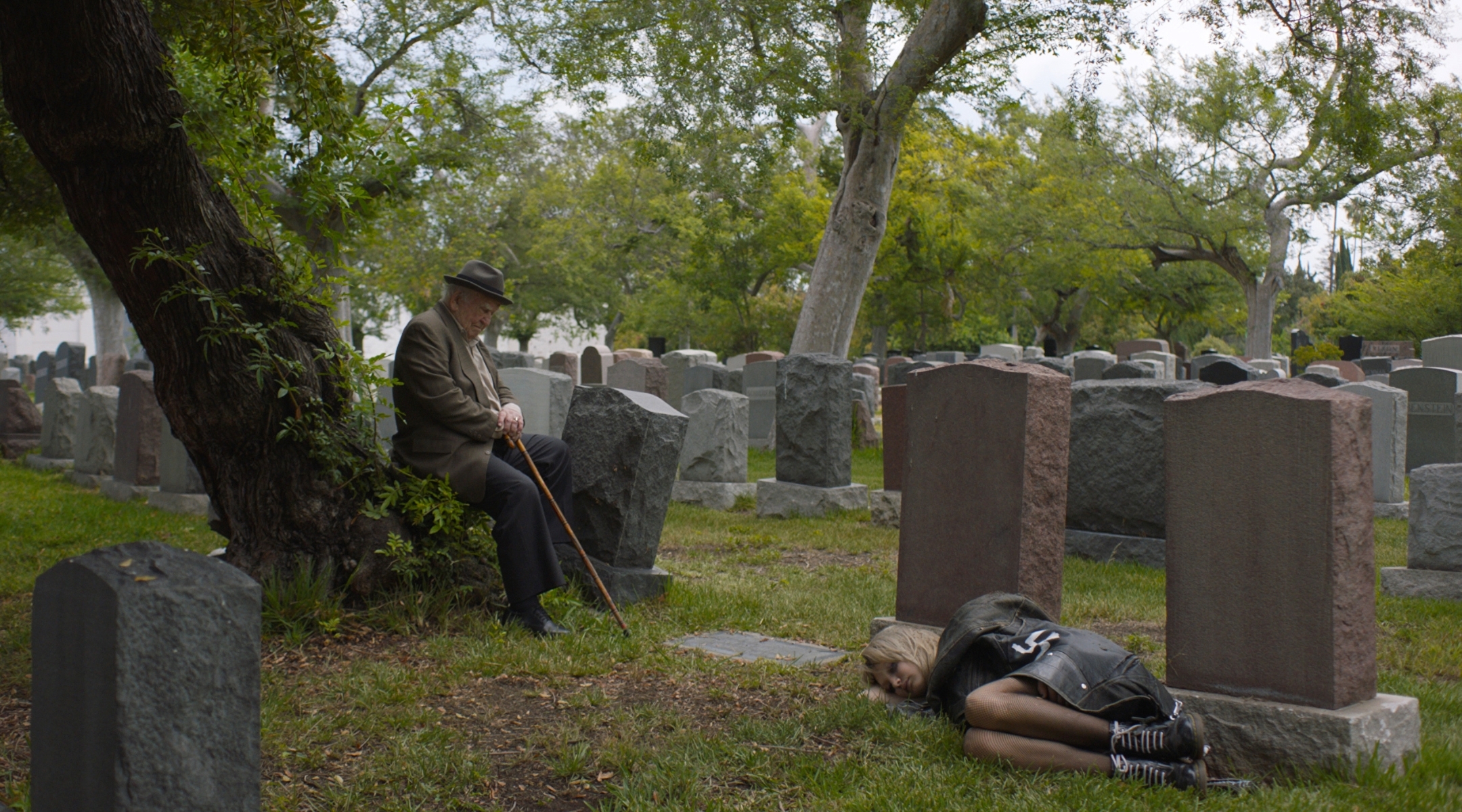Ed Asner plays a Holocaust survivor in film being released 2 years after his death
Ed Asner died in 2021, but his final film will be released Friday

Margot Josefsohn and Ed Asner in “Tiger Within.” Asner died in 2021 (Courtesy of Menemsha Films)
(JTA) — The prolific Jewish actor Ed Asner died nearly two years ago, but his final film will hit select theaters on Friday.
In “Tiger Within,” he plays a Holocaust survivor who becomes the unlikely friend of a homeless teenager who was raised by a Holocaust denier. The movie was filmed in the summer of 2018, and Asner, the Emmy award-winning actor best known for his roles as Lou Grant on the “Mary Tyler Moore Show” and Carl in the Pixar animated film “Up,” died in 2021 at the age of 91.
“Tiger Within” follows Casey, played by newcomer Margot Josefsohn, as a troubled 14-year-old living in Los Angeles. After running away from her neglectful mother and failing to find support from her father, Casey takes shelter in a cemetery, where she meets Samuel (Asner), an elderly man visiting his wife’s grave. Samuel, a Holocaust survivor, notices the swastika on Casey’s signature leather jacket and begins a conversation, eventually offering Casey some food and a safe place to sleep. Over the course of their friendship, she learns about the realities of the Holocaust and Samuel fulfills the promise he made to his deceased wife to learn to forgive.

As part of the preparation for the film, director Rafal Zielinski researched forgiveness by interviewing religious leaders and hundreds of young people on the streets of Los Angeles about what forgiveness means to them. The answers were varied, ranging from unconditional forgiveness to measured or transactional.
“It shows how divided we really are,” Zielenski said in a statement. “We all really want to forgive and unburden ourselves, but our human nature and upbringing intercepts us.”
The film does not explain what type of forgiveness, exactly, Samuel is referring to. But the filmmaker felt that the focus on friendship between these two generations was important given that nearly two-thirds of American young adults do not know that six million Jews were killed during the Holocaust. Almost a quarter of respondents to that study, who were between ages 18 to 39, said they believed the Holocaust was a myth. Another 18% said they had definitely not heard, or did not think they had heard, about the Holocaust.
Born and raised in Kansas City to Jewish immigrant parents, Asner told interviewers over the years that his parents practiced a “midwestern” form of Orthodox Judaism, observing many of the religious laws but driving to synagogue. He would play several Jewish characters and work with several Jewish organizations. He was also involved in political activism and joined Jewish Voice for Peace initiatives in speaking out against Israel’s occupation of the West Bank.
“Bury my ashes in Mount Scopus,” he told the Forward in 2012.
This article originally appeared on JTA.org.



















